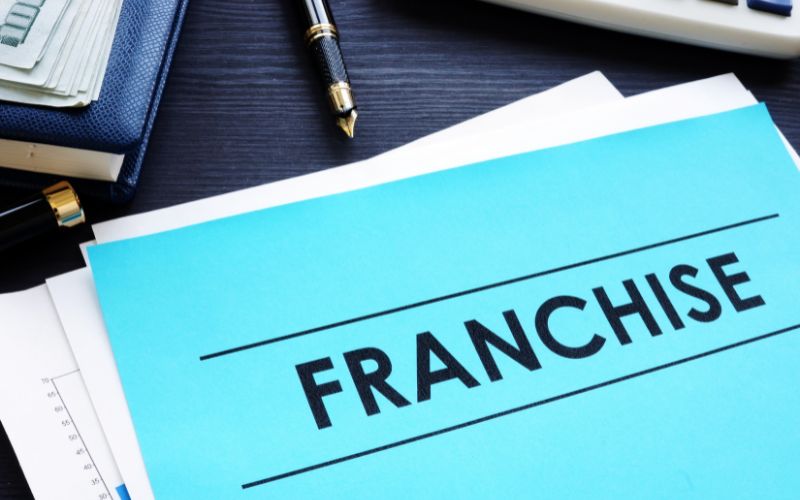Franchise Fraud: 6 Tips to Stay Safe

If you’re going the E-2 visa route through franchising, you’re entering an exciting world full of opportunity. Moreover, franchises offer a proven business system, strong brand support, and a faster path to success. But don’t let the bright promises blind you—franchise fraud is a real risk that can cost you time, money, and peace of mind.
Franchise fraud isn’t just an industry buzzword. It’s a real threat that can drain your investment, damage your immigration prospects, and shatter your confidence. Behind glossy brochures, polished presentations, and persuasive franchise brokers, some offers hide misinformation, unrealistic claims, or worse.
In this guide, I’ll help you spot the red flags, understand your rights, and take the right steps to protect your investment while meeting the strict requirements of your E-2 visa. Because your American dream deserves more than luck—it demands smart decisions.
What Franchise Fraud Really Means
Let’s cut to the chase. Franchise fraud happens when someone selling a franchise—whether it’s the franchisor, a broker, or some middleman—uses deception or misleading statements to convince you to buy.
Furthermore, it isn’t just about honest mistakes. It’s about deliberately misrepresenting of material facts to push you into a bad deal. As an E-2 visa investor, this risk hits especially hard because your immigration status depends on your investment’s legitimacy and success.
Franchise fraud can take many different forms:
Overstated profits and potential earnings.
You might hear stories about amazing income or quick success that don’t hold up when you dig deeper. However, these misleading statements are designed to lure you in with unrealistic promises.
Hidden or exaggerated support.
A franchisor might promise extensive training and ongoing help, but once you sign, that support disappears. It damages the critical franchise relationship you need to thrive.
Concealing risks or legal troubles.
Similarly, important information like ongoing lawsuits, financial problems, or high franchisee failure rates might be swept under the rug. This omission is a serious violation of both the FTC Acts and state laws protecting buyers.
Pyramid schemes disguised as franchises.
Moreover, some bad actors mask recruitment-focused scams as legitimate franchises. These models prioritize signing up new franchisees over running a real business, which is a clear unfair trade practice and a red flag for fraud claims.
As a savvy E-2 visa applicant, you need to be alert to these tactics because falling victim to franchise fraud doesn’t just cost you money—it can put your entire visa approval at risk.
Common Red Flags and High-Pressure Sales Tactics to Watch Out For

Protect yourself by spotting these warning signs early:
- High-pressure sales tactics like “Sign today or miss out!” or “This offer expires now!” If a franchisor or broker pushes you to make a quick decision, that’s a major red flag. Legitimate franchise relationships are built on transparency and trust, not panic.
- Refusal to share key documents. You have a legal right to review the franchise disclosure document (FDD) before you sign anything. If a franchisor or broker tries to rush you past this or won’t provide the FDD, that could be a violation of the FTC Act and state laws designed to protect you.
- Earnings claims without documented proof. The FTC requires all earnings claims to appear in Item 19 of the FDD. Moreover, verbal promises or flashy marketing projections that lack official documentation are misleading statements that should set off alarm bells.
- No audited financial statements. Transparency is non-negotiable. If the franchisor refuses to provide audited numbers, you’re dealing with a serious lack of honesty and possibly a violation.
These warning signs often indicate unfair trade practices or even fraud claims against the franchisor or brokers involved. Remember, your gut feeling matters. If something feels off, don’t ignore it—dig deeper or walk away.
Who Is Watching Over Franchise Sales?
Thankfully, there are watchdogs to protect investors like you:
- The Federal Trade Commission (FTC) enforces the Franchise Rule, making sure franchisors provide the FDD at least 14 days before any money changes hands. Consequently, it gives you time to dig deep and get professional advice.
- Many states have their own franchise laws that provide additional layers of consumer protection against deceptive conduct and unfair practices.
- The Better Business Bureau (BBB) is a valuable resource for checking a company’s reputation and seeing if there are ongoing complaints or fraud claims.
Being aware of these protections and using them to your advantage is a smart move. Furthermore, it is not just about following the rules. It is about safeguarding your future.
What You Can Do To Avoid Franchise Fraud
Navigating the franchise world can feel like walking a tightrope, especially if you’re an E-2 visa applicant whose investment and immigration status are on the line. The good news? You can protect yourself by knowing exactly what to look for and how to do your homework.
Here’s your roadmap to spotting real opportunities—and steering clear of scams.
1. Spot the Difference Between Real Franchises and Scam Models

First things first: not all franchises are created equal. To separate legitimate business opportunities from pyramid schemes and scams, focus on these core differences.
Legitimate Franchises usually:
- Have a proven franchise system. It means the business model has been tested, refined, and shown to work reliably over time.
- Clearly define the franchise relationship. The franchise agreement spells out the rights and responsibilities of both franchisee and franchisor—no guessing games here.
- Provide solid training, marketing, and ongoing operational support. In fact, you’re not just buying a brand; you’re buying a system designed to help you succeed.
- Operate transparently. Legitimate franchisors openly share their company history, financials, and any litigation in the franchise disclosure document (FDD).
On the flip side, Scam and Pyramid Schemes often:
- Focus more on recruiting new investors rather than selling real products or services. If the emphasis is on getting you to bring others in, run.
- Lack of a clear operational system or support. They want your money, not your success.
- Make outrageous promises about quick riches or huge profits with minimal effort. If it sounds too good to be true, it probably is.
- Use vague or confusing contracts or withhold important information. Transparency is nowhere to be found.
2. Make FDD Your Best Friend

Think of the FDD as your business Bible. Specifically, this document contains 23 critical sections that lay everything bare about the franchise opportunity, helping you uncover the truth before you commit.
Focus closely on:
- Item 19: Financial performance representations. It is where you find real earnings data—or notice its absence. If this section is missing or unclear, that’s a major red flag.
- Item 3: Litigation history. Lawsuits, bankruptcies, or disputes can signal trouble behind the scenes.
- Item 21: Financial statements. These show the company’s actual health and stability.
Watch out for warning signs like ongoing lawsuits, a high number of terminated franchisee clients, or incomplete disclosures that hide key differences between franchisees and lead franchisees. Moreover, these could be signs of misrepresentation or worse.
3. Read Every Word in the Franchise Agreement
Once you’re past the FDD, the franchise agreement is the legal contract that binds you and the franchisor. It covers:
- Your territory rights, fees, royalties, and operational rules.
- Obligations like mandatory marketing fund contributions or required vendor purchases.
- Termination and renewal clauses could lock you into unfair conditions or expose you to hidden costs.
Signing this contract without fully understanding it is like stepping into quicksand. Consequently, it can lead to unexpected expenses and put your investment and your visa status at risk. That’s why having a seasoned franchise lawyer review everything is not optional—it’s essential.
4. Due Diligence: Your Best Defense

Don’t take the franchisor’s word as gospel. Protect yourself by doing real homework:
Talk to multiple current and former franchisees.
Ask about their actual profits, the support they received, and any challenges they faced. Hearing from those “in the trenches” gives you the real picture.
Check trusted resources.
Look up Better Business Bureau reports and scan the FTC complaint databases for any history of fraud claims or unfair trade practices.
Consult industry experts.
Independent franchisee associations and business groups can provide valuable insight.
Final Thoughts
Buying a franchise is a huge commitment. Especially, for E-2 visa applicants, it is more than a business; it is your ticket to building a life in the U.S. Therefore, taking shortcuts or ignoring red flags can lead to disaster.
Remember these final tips before signing:
- Always review the franchise disclosure document and franchise agreement with your legal team.
- Verify all claims with multiple franchisee clients. Do not just take the sales pitch at face value.
- Research the company’s history with the Better Business Bureau and the FTC.
- Never let anyone rush or pressure you into signing. Your investment and your visa depend on getting this right, especially when negotiating franchise fees.
When you combine knowledge, professional guidance, and healthy skepticism, you can confidently avoid franchise fraud and invest in a legitimate franchise that supports your business dreams and visa goals.
Ready to take the next step? Consider asking for a detailed franchise due diligence checklist tailored for E-2 visa investors or personalized advice from a franchise expert E-2 visa consultant.
Your future deserves nothing less.